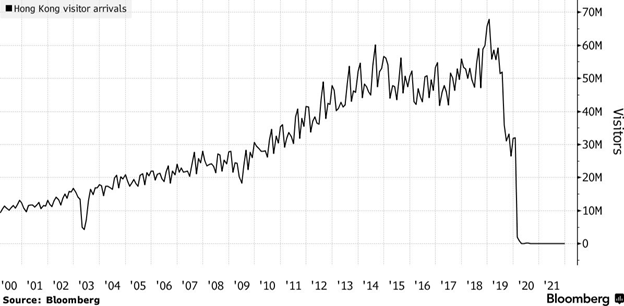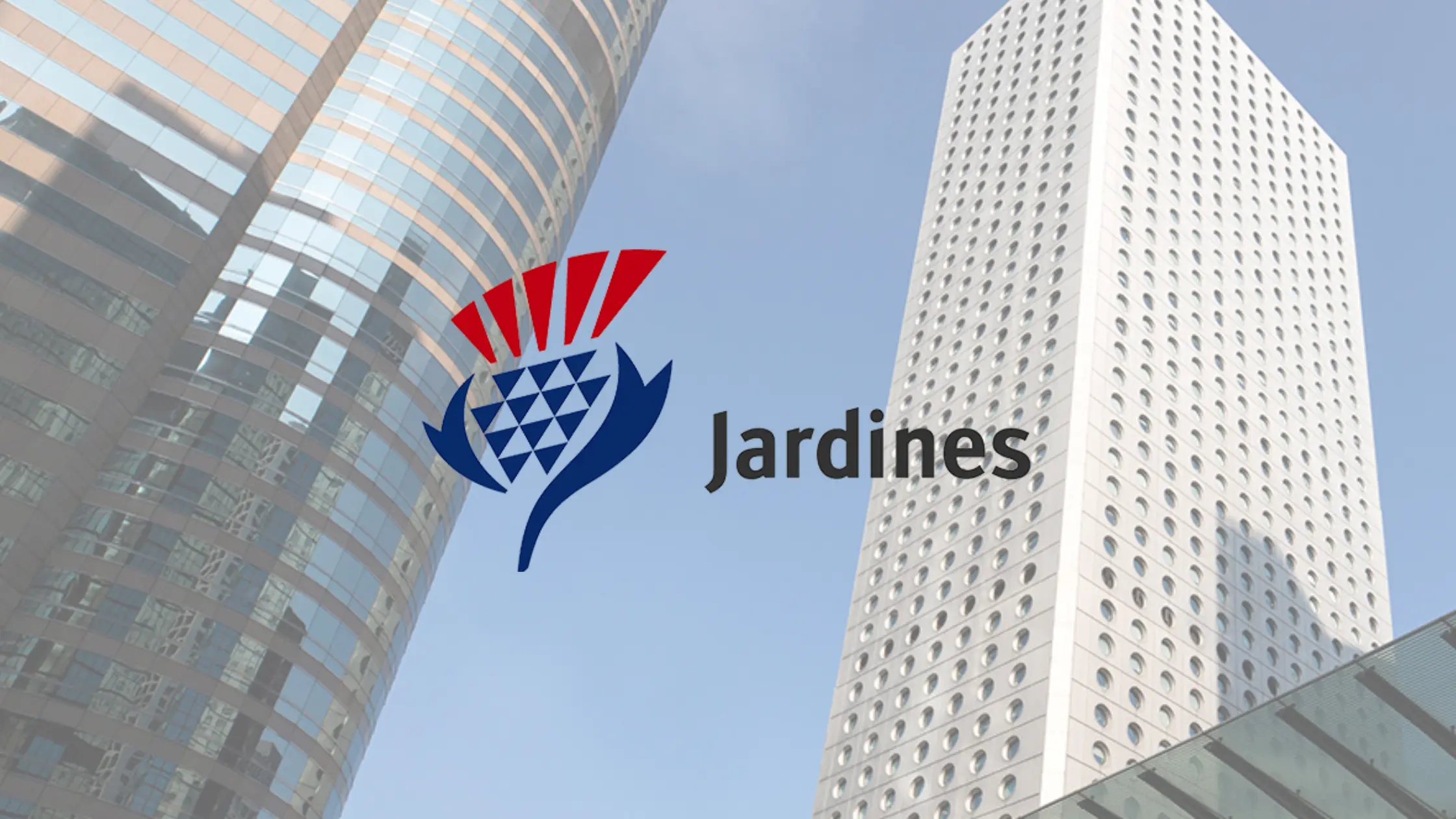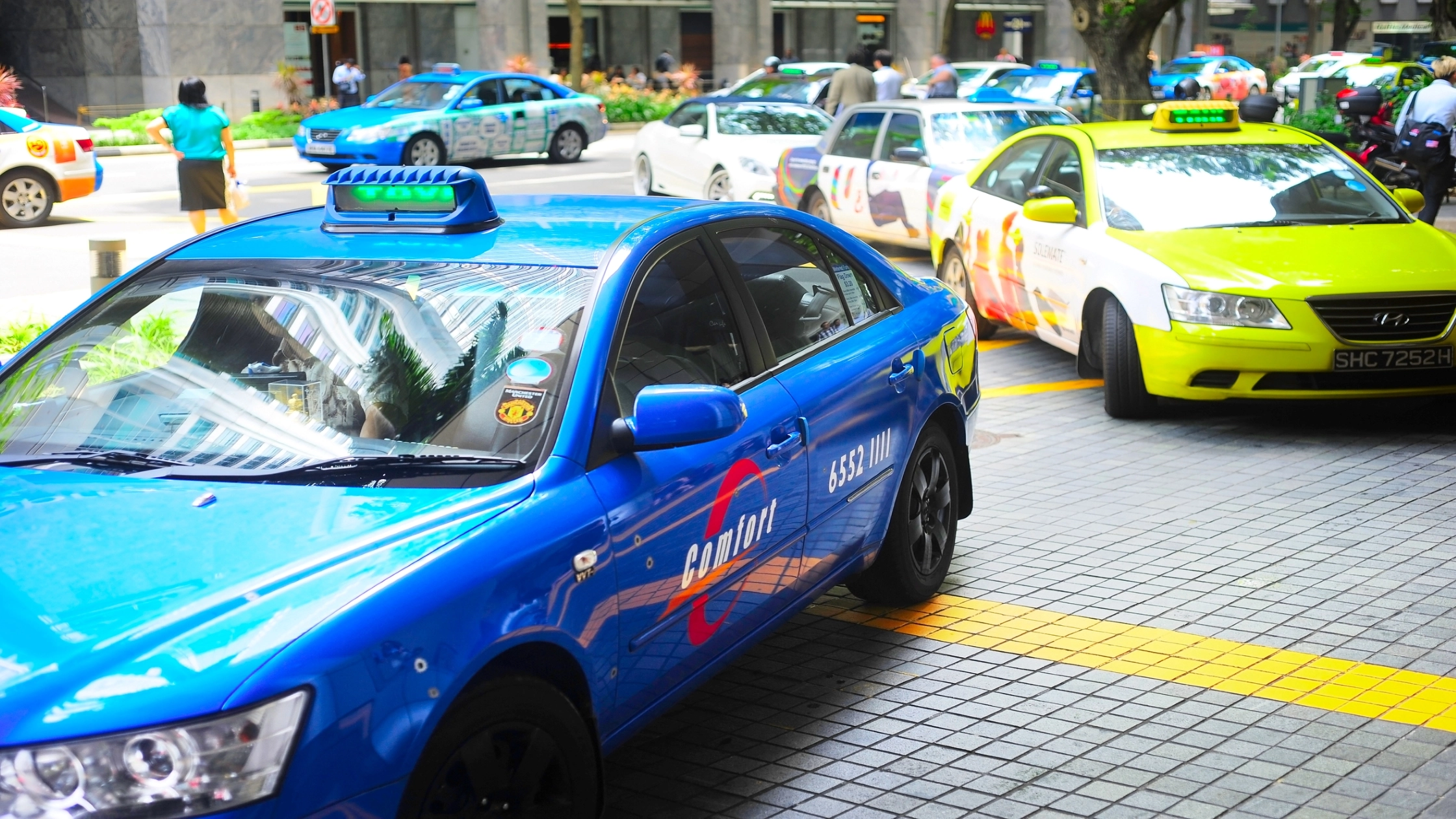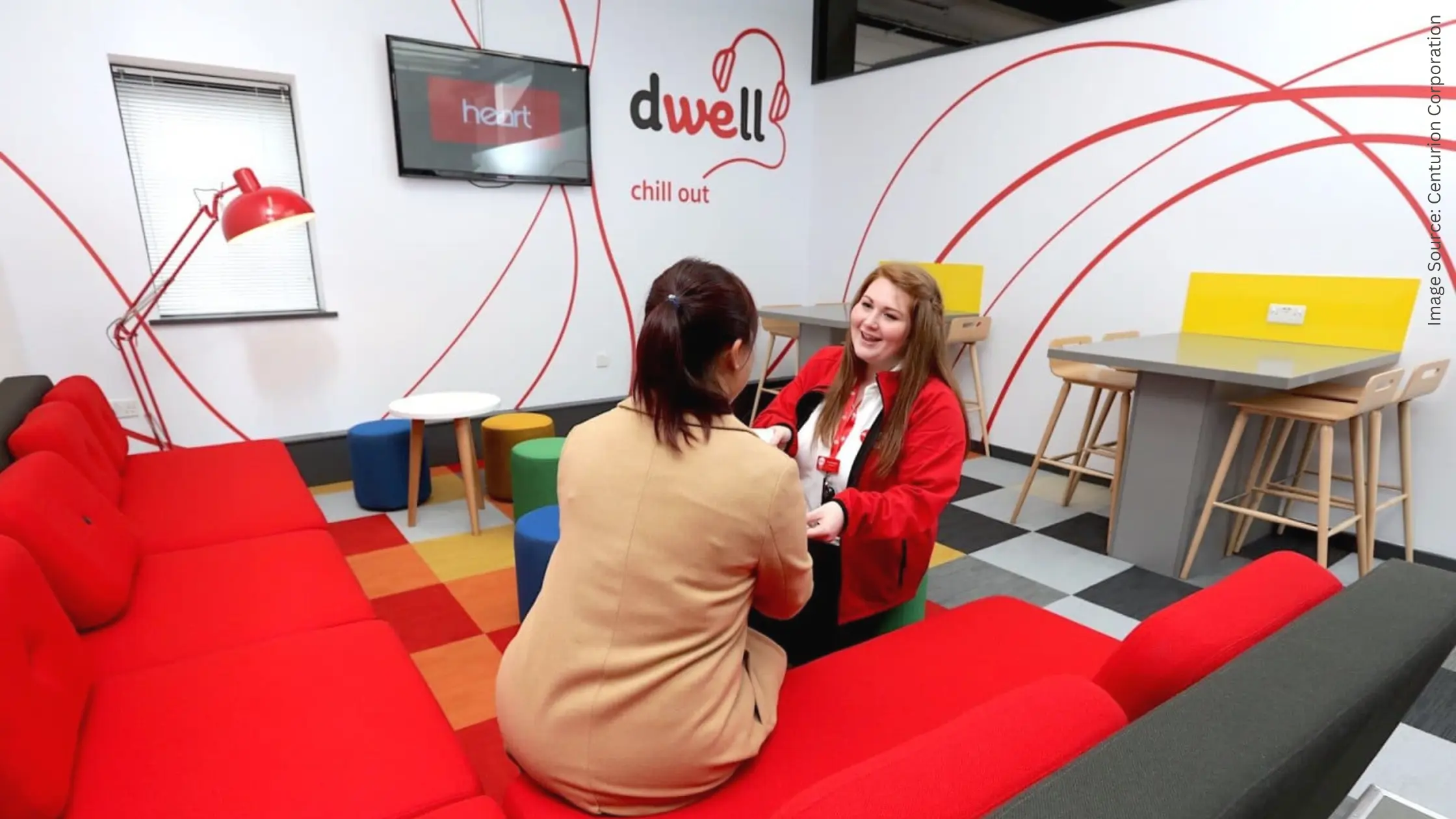The Covid-19 pandemic era has been one to forget for everyone. However, that’s no more true than it is for Hong Kong, where the local economy is suffering from the government’s policy of closed borders.
Hewing closely to Mainland China’s “dynamic zero-Covid” policy, the city is stuck between trying to open its border with Mainland China, or the rest of the world.
With the focus on re-opening the border with China, strict movements on international travel have meant a precipitous fall-off in tourist arrivals (see below).
From 1 May to 7 May, only 512 non-residents arrived at the Hong Kong International Airport. Meanwhile, Singapore (having initially set up “vaccinated travel lanes”) is now moving towards a state of fully open borders.
That’s been clear in the visitor numbers for the first three months of 2022 as Singapore welcomed 57,000 short-term visitors in January, 67,000 in February and 120,000 in March.
Where to think about investing?
That has meant some tough times for Hong Kong businesses, particularly ones that are becoming increasingly irrelevant.
It has also seen some Singapore businesses, like DFI Retail Group Holdings Ltd (SGX: D01) – which relies heavily on Hong Kong as a revenue generator – struggle.
However, on the bright side, there are many businesses that are benefitting from Singapore’s re-opening to international travel.
While tourism-related stocks, such as hospitality REITs, may not get a massive boost given Chinese tourists are still not travelling, companies such as SATS Ltd (SGX: S58) are starting to see bright spots.
The ground handling and in-flight catering service provider for Singapore’s Changi Airport has seen a strong year-to-date gain of over 10% as investors expect Singapore’s aviation hub to continue to ramp up operations.
SATS also provides a useful microcosm of the dichotomy between the Singapore and Hong Kong stock markets.
Hong Kong’s stock market continues to be buffeted by “zero-Covid” and the crackdown on tech stocks, with the benchmark Hang Seng Index down nearly 15% so far in 2022.
On the other hand, Singapore’s Straits Times Index is up just over 2% year-to-date – despite all the volatility currently roiling markets.
So, for long-term investors, it bears thinking about how Covid-19 policies impact local economies and their companies when we make decisions to invest.

Disclaimer: ProsperUs Head of Content & Investment Lead Tim Phillips doesn’t own any shares of companies mentioned.










